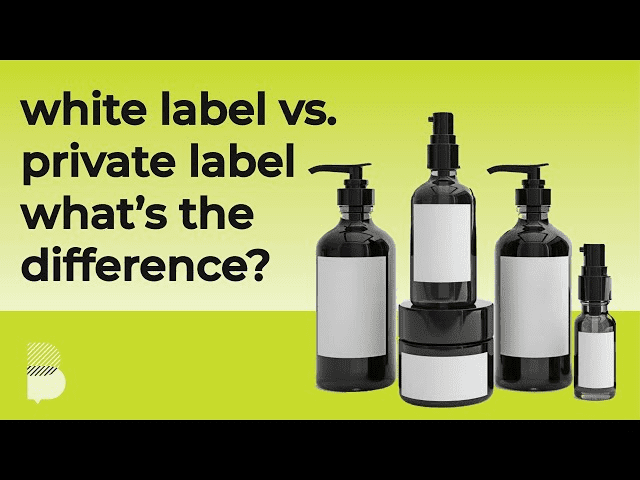In today’s day and age, companies have a plethora of methods to manufacture and sell their products. The most sought-after one is either opting for private labeling or white labeling. But the terms are used interchangeably a lot despite being different; hence, we will clear all the confusion for the new budding entrepreneurs once and for all.
What is White labeling?
White labeling is simply the process of selling products made by a contract manufacturer with your branding and aesthetics. The contract manufacturer in this case handles all the raw material procurement and production; they also produce the same products for other parties as well; you just sell them as yours by putting your label or branding on the final product. Hence, the product is the same but is sold by multiple retailers under their unique branding.
Example: The most common example is contract manufacturers like TrustWorks, who offer multiple white-label products like gummies, liquids, and vitamins. They also offer bottling, packaging, and labeling services for health and wellness brands that have white-label products via Trust Works. What is Private labeling?
Private labeling is the process of getting products manufactured through contract manufacturers specifically for a brand. The brand here has full control over what material will be used, what process will be used, and what kind of tools will be used. The brand provides a catalog of all the things they need in the product, along with the specifics of the process and material. It is an exclusive deal between the brand and the contract manufacturer.
Example: Trust Works is a US-based contract manufacturer that makes products like Vitamin D3 Gummies, Sleep Gummies, Turkey Tail Gummies, and many more such supplements for leading U.S.-based healthcare brands. They have a large catalog of soft gels, gummies, and vitamins, and they make them for big brands like GNC, Kroger, Walgreens, etc. Trust Works offers custom gummy manufacturing and liquid and tincture formation as well. The brands can get the products customized as per their requirements.
So how is White labeling different from Private labeling?
- In white labeling, manufacturers make the same product for multiple brands or retailers, whereas in private labeling, products are manufactured exclusively for a brand or retailer.
- In white labeling, the retailer or brand cannot make any changes to the product but can rebrand and market it in whatever way they want, whereas in private labeling, the retailer or brand has full control over the product and can get it modified and developed as they, please.
- White labeling is the fastest way to enter the market; the brand or retailer has to focus only on marketing and advertising, saving on research and development costs, whereas, in private labeling, the products take longer due to the money being spent on research and development.
- White-label products generally have a lower selling price as compared to private-label products; this is the reason why Boat products are available at such a cheap price when compared to brands like Sony and Boss.
What are the similarities between White labeling and Private labeling?
Contract Manufacturing by Third Party: In both white and private labeling, the products made are manufactured by a third party. Hence, the products are not made by my brand or retailer directly.
Full Control over Branding and Marketing: In both white and private labeling, the retailer or brand has full control over the branding and marketing of the product; they can get the product branded and marketed in their unique way; the manufacturer has no involvement in this. The retailer or brand can put their logo and name on it and advertise it as per their strategy.
No Trademarks: The manufacturing companies involved in white and private labeling work solely on a B2B model, which means that the manufacturing company cannot put their own label or branding of any sort on the product. Although it is common practice to disclose the name of the manufacturer, the brand or retailer sometimes skips on it, and people might not be aware that the product is made by a different entity.
White labeling or Private Labeling? Which one is better for you?
It all boils down to how you envision your business. Here are some factors to consider when deciding whether to go ahead with a white label or a private label.
Go with a Private Label if:
- You want to cut labor costs.
- You have a design/formula plan for your product or service.
- Your product or service is better than the white-label competition.
Go with the White Label if:
- You want to penetrate the market quickly.
- You don’t want to spend on research and development.
- The product or service has very high demand.
- You have a strong hand in the marketing and advertising department.







